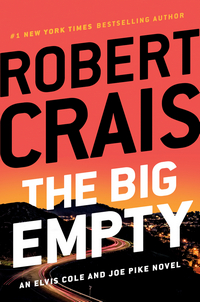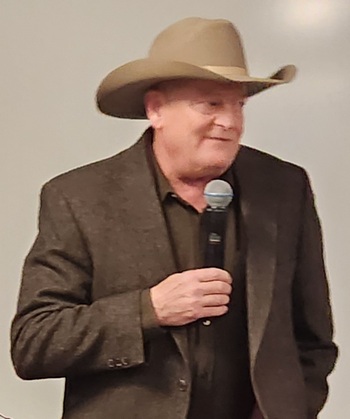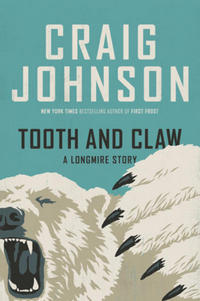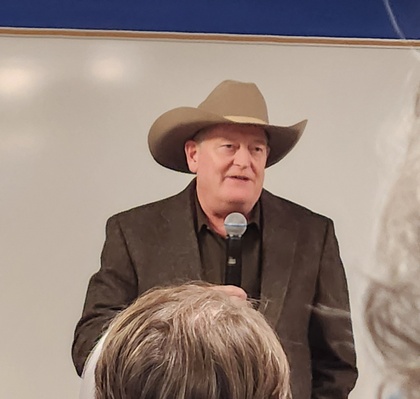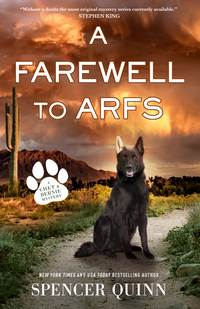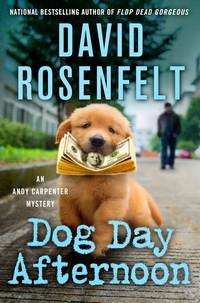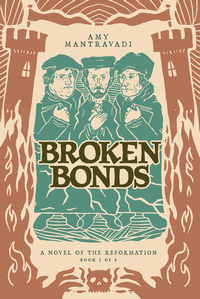 Broken Bonds
Broken Bonds
DETAILS: Publisher: 1517 Publishing Publication Date: November 26, 2024 Format: Paperback Length: 300 pg. Read Date: December 15-22, 2024

What’s Broken Bonds About?
This is a work of historical fiction focusing on April 1524-January 1525, at what will prove to be a significant period in the German Reformation. The narrative focuses on three men: Desiderius Erasmus, probably the greatest scholar of the era, and a would-be reformer of the Church; Martin Luther, the Reformer (who went further than Erasmus would’ve), and Philipp Melanchthon, a promising young scholar with ties to them both.
The book follows their connections and interactions with each other—as theoretical as some of them might be—as leaders put pressure on all three to sway them one way or the other, to pick up their pen (or lay it down) for an end, to cease their efforts to reform the Church, to increase their efforts to reform the Church (in ways they cannot agree with), and so on.
Martin Luther
Luther is the most well-known of the trio today, for good reason. In this novel we see Luther trying to reason with his former friend Karlstadt as the latter continues to cause trouble for Luther and everyone in their area. Luther is also trying to get more compensation for and more opportunities to teach and write for Melanchthon—for the sake of the young man’s family and the University of Wittenberg, who could use him.
He’s also dealing with some personal issues—how far does he go himself? Does he give up the monastic robe for that of an academic? It’s so much of his identity, he still holds the vows he swore before him, it cost Luther so much personally to follow this path—and despite the upheaval in his life, is he prepared to lay it all aside? This was so excellently done.
We get some glimpses of some of Luther’s multiple medical issues, a little bit of his humor, and a delightful relationship with and interaction with his goddaughter, too. Mantravadi is careful to present us with a human Luther, not some superhero.
Looming over all that Luther does here is an impending intellectual showdown with the one man he’s not sure he wants to debate with, but is steeling himself to lock horns with:
Desiderius Erasmus
Before Luther burst on the stage, it was easy to think of Erasmus as the greatest Christian thinker, writer, and scholar of his time. Erasmus did try to push for some institutional reforms and had many of the same aims as Luther, but he went about things in a less inflammatory way.
He’s been dodging requests and pleas to interact with Luther for quite some time now—but the pressure is mounting and he’s not certain he can do so much longer. Reluctantly, he picks up his pen to compose On Free Will to directly counter some of Luther’s teachings.
We get a very sympathetic view of Erasmus and his interactions with friends and Protestants he interacts with daily. His health struggles are different than Luther’s but painted just as vividly here. One bout of kidney stones, in particular, almost triggered flashbacks to my last one. I found myself really liking Erasmus and pulling for him.
One of Erasmus’ greatest goals—to chill the Lutheran movement, to further promote diverse ideas in the Academy/Church, and to hand off his work to a brilliant scholar—is to get Melanchthon to come to work with him, and essentially assume his mantle when he’s gone.
Philipp Melanchthon
Melanchthon is a struggling academic, just trying to make enough money to provide for his wife and daughter. He loves to be in the classroom (and it shows), but he’s equally open to teaching in other places, too. He sides with Luther, just not as vociferously as some may want—but Luther appears to trust him.
Melanchthon is tempted to take Erasmus’ offer—it’s a dream situation for him, it’s exactly what he wants. But he’s afraid that he’d have to water down or abandon his Protestant convictions and he’s not ready to do that.
His depiction is easily the most relatable, the most appealing—between the way other characters (particularly Erasmus and Luther) talk about him and the way that Mantravadi shows him, you could make the argument that the others are supporting characters in a novel where the young man is the protagonist.
He does frequently seem too much like a 21st-century man rather than one from the 16th. Particularly when it comes to talking about his wife and daughter. But maybe that’s just me. I really liked it, so I don’t care. Hopefully, it’s close to the truth.
The last thing I want to say about Melanchthon is that there’s a scene with a bunch of students for a sort of study club (best way I can summarize it). It is one of my favorite fictional depictions of a teacher and a group of students since John Keating and that ill-fated group at Welton Academy. I don’t want to give you details, but more than I want his family life to be the way that Mantravadi depicts it, I want this to be true.
The S-Word
So, a lot of the subjects of this book—particularly when it comes to health, but even beyond it—are what some would call “earthy.” It wasn’t a pleasant time to live in many ways, particularly digestive. Anyone who’s read much of Luther’s daily life, humor, or personal history well knows that he can be somewhat scatological. The working of his bowels is a frequent topic for him.
Erasmus isn’t much different. Melanchthon, thankfully, is—but not the people he spends time with.
It’s likely not enough to put anyone off—if anything, it might recruit some younger readers 
So, what did I think about Broken Bonds?
I went into this with some hesitation—the last two fictional works I read about this time period put me off in a serious way. (one was pre-blog, so I can’t point you at anything I wrote, and I don’t feel like picking on the other again). But I know that Mantravadi has a good reputation among some Church Historians—and even heard her interviewed by one a few years ago, so I felt safe.
I’m so glad that I did—these characters came alive to me in a way that two of them haven’t before (even if I think she handled Luther with kid gloves). She used their positions, arguments—sometimes even words—well in the progress of the novel. There are plenty of footnotes for those who want to dive more into their works. Which is always a bonus in this kind of work (also, footnotes—not endnotes).
The historical detail is there, but not so much of it that you get bogged down in it—the pacing keeps moving at a good clip throughout. Are some of these events overly-dramatized? Quite possibly. Are some of these under-dramatized? Equally possible. It is, in the end, a work of fiction and that needs to be remembered.
It’s a fast-paced read for something in this genre, it’s sympathetic to all its protagonists (even when they’re at odds), there’s good tension—even when it comes to talking about academic pursuits (not the easiest thing to dramatize), and there’s a heart and warmth to it all.
I think this would work for middle school-aged readers, and for most adults, too. You might even learn a little about history and theology while you’re at it. It’s definitely worth the investment of time. I’m more than ready for the second in this duology.

This post contains an affiliate link. If you purchase from it, I will get a small commission at no additional cost to you. As always, the opinions expressed are my own.
![]()



